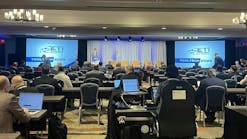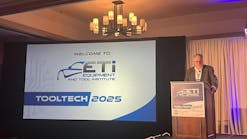U.S. Copyright Office grants third-party repairers access to vehicle software
Third-party vehicle repair providers now have legal access to vehicle software, according to a ruling by the U.S. Copyright Office.
Language in the Digital Millennium Copyright Act (DMCA), implemented in 1998, presented a problem for the vehicle maintenance and repair world and the Copyright Office recently issued an exemption after petitioning from industry stakeholders.
The statute states that no people should avoid, bypass, remove or deactivate any technological measure in place meant to protect copyrighted information. In regard to vehicle repair, this includes the copyrighted computer programs on the electronic control units that control the functioning of the vehicles. The exemption now allows vehicle repair professionals access to this software for the purpose of diagnosing, repair and modification of vehicles.
Exceptions for the rule are granted only when evidence shows that it is "more likely than not that users of a copyrighted work will, in the succeeding three-year period, be adversely affected by the prohibition on circumvention..."
Proponents contended that, because these systems are increasingly integrated with functional vehicle firmware, access is necessary to engage in diagnosis, repair, and modification of vehicle functions, the ruling reads.
The Motor & Equipment Manufacturers Association supports the exemption as "striking an appropriate balance between encouraging marketplace competition and innovation while mitigating the impact on safety, regulatory and environmental compliance."
"The petitioners demonstrated personal knowledge and experience with regard to this exemption; each either represents or gathered information from individuals conducting repairs or businesses that manufacture, distribute, and sell motor vehicle parts, and perform vehicle service and repair," the ruling reads.
The National Telecommunications and Information Administration supported expanding the existing exemption to allow “use of telematics data for diagnostic purposes.” It recommended, however, “limiting use to obtaining the diagnostic data from the telematics module for purposes of repair and modification of the vehicle, and not repair or modification to the module itself.”


